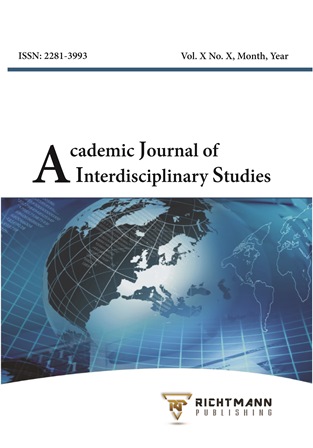The Perceived Challenges of Anglophone Expatriate Male Spouses Living in South Korea: A Qualitative Case Study
DOI:
https://doi.org/10.36941/ajis-2023-0001Keywords:
Anglophone, Korean proficiency, migrant spouse, multicultural services, perceived challengesAbstract
The rapid increase in globalization has changed the social dynamics of many countries around the world. This has especially been the case for the Republic of Korea. In this qualitative case study, the particular challenges of Anglophone expatriate male spouses married to Korean women are explored. Utilizing questionnaires, narrative frames, semi-structured interviews, and researcher field notes, three themes and five subthemes were found. The three main themes are lack of appropriate government support services, limitations due to low Korean proficiency, and issues of power and inequality between the spouses. The subthemes include communication struggles, daily functioning difficulties, lack of decision-making power, and desire for social acceptance and equality. The results indicate that the needs of Anglophone expatriate male spouses have been largely ignored compared to other subgroups of foreign spouses in Korea as most of the services provided by the government through multicultural centers and other government facilities are aimed towards southeast Asian wives of Korean husbands. Thus, this study concludes that current government policies regarding foreign spouses and multicultural families need to be improved to become more inclusive of the needs of all categories of foreign spouses and multicultural families in Korea. This inclusivity will lead towards greater multicultural family sustainability in the future.
Received: 10 October 2022 / Accepted: 26 December 2022 / Published: 5 January 2023
Downloads
Downloads
Published
Issue
Section
License

This work is licensed under a Creative Commons Attribution-NonCommercial 4.0 International License.
This work is licensed under a Creative Commons Attribution-NonCommercial 4.0 International License.








